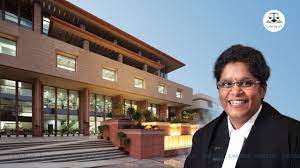“Widely publicize crowd-funding platform for treatment of children with rare diseases”: Delhi High Court tells Centre

The single-judge bench was hearing a batch of petitions concerning children with rare diseases like Duchenne Muscular Dystrophy (DMD), Hunter's Syndrome, etc. The pleas prayed for directions to provide the children treatment, free of cost, as the medical treatment for such diseases is very expensive.
The Delhi High Court recently suggested the Centre to widely publicize the crowd-funding platform under the National Rare Diseases policy for the treatment of children with rare diseases.
Justice Prathiba M. Singh was hearing a batch of petitions concerning children with rare diseases like Duchenne Muscular Dystrophy (DMD), Hunter's Syndrome, etc. The pleas prayed for directions to provide the children treatment, free of cost, as the medical treatment for such diseases is very expensive.
Justice Singh directed Centre to prepare a detailed plan for the publicity of the crowd-funding, and also directed the same to be communicated to the Public Sector Units (PSUs) as well as corporate entities so that they consider contributing under their Corporate Social Responsibility (CSR) Accounts.
Furthermore, the court directed that there shall be a proper follow-up of these communications and any response shall be placed on record.
During the hearing, court noted that a sum of approximately Rs. 500 crores will be needed for phases two and three of clinical trials and directed the counsel for Centre to obtain instructions on whether the aforementioned amount could be released urgently for the company to begin the trials. Accordingly, the court listed the matter for December 22.
Earlier, a single-judge bench of Justice Yashwant Varma had directed the Centre to take a more pragmatic approach to extend financial assistance to patients suffering from rare diseases, based on its proposal to support up to Rs. 50 lakhs per patient for "treatment" of rare diseases. Justice Varma had opined that the issue would warrant a more pragmatic approach, given the costs involved in the import of drugs, which are also untried and untested.
In June, the court admitted that there was a lack of research in the course of treatment, which may establish long-term outcomes of the treatment protocols being followed. However, that would not detract from the right of the patient, to receive such treatment, the court said then.
The court's observations were made after the All India Institute of Medical Sciences (AIIMS) examined the medical records of children suffering from rare diseases. The AIIMS Expert Committee recommendations were placed before the court wherein the committee had opined that the administration of the drugs may help in the decline in cardiac as well as ambulatory functions in some of the Petitioners.
The Court was further apprised of the issuance of an Office memorandum dated May 19, 2022, in which it had been provided that financial support up to Rs. 50 lakh would be given by the government, under the Umbrella Scheme of Rashtriya Arogya Nidhi, to those who suffer from rare diseases as listed.
The Court had then directed the competent authority in the Department of Biotechnology to explore other generic forms of treatment that may be under development and may warrant consideration.
Case Title: Master Arnesh Shaw v. Union of India & Anr.
